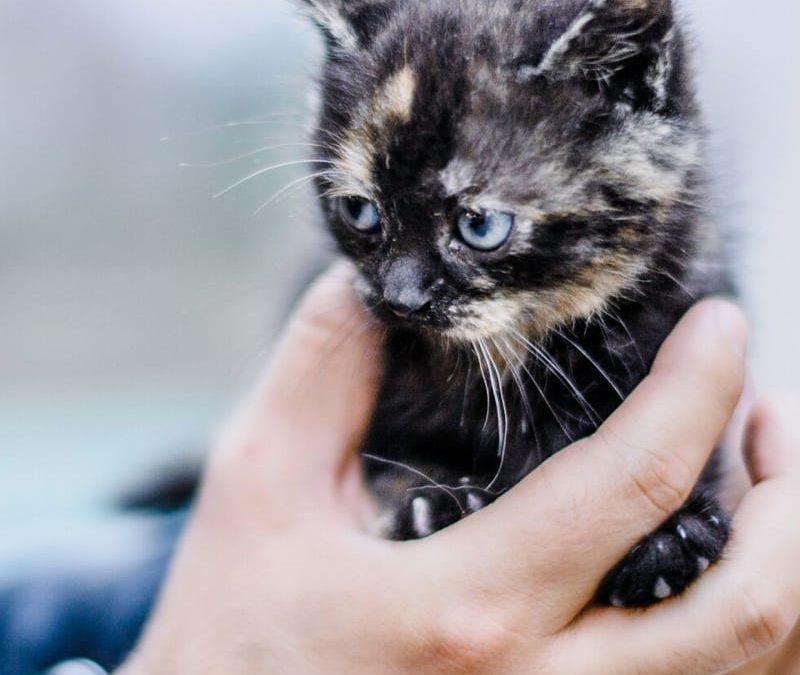Animal Rights Awareness Week might have been last week, but there is still time to get involved. We thing every day should be dedicated to animals and give a voice to the voiceless!
Animal Rights Awareness Week was created to provide education and tools in the fight for animals’ rights. It also helps bring awareness to issues all animals face when it comes to animal abuse, abandonment and neglect, whether it’s domestic pets, farm animals, or wildlife.
While most people treat their pets with love and kindness, sadly so many animals don’t get to experience the same treatment. Many people are not aware of the horrors animals face, from puppy mills and neglect to cruel animal testing in labs, abuse on farms, and horrific conditions in animal shelters, zoos, and circuses. Just because an animal may be raised for consumption or was unwanted, that doesn’t mean they don’t deserve our respect and proper care.
In addition, there has been a direct correlation between animal abuse and domestic violence. In one survey, 71 percent of domestic violence victims reported that their abuser also targeted pets. And while we know that animal abuse and neglect happens on a daily basis, it often goes unreported. It is considered one of the most egregious crimes with the least convictions. In addition, undercover investigations revealed that animal abuse runs rampant in the factory farming industry. With weak protections afforded to livestock under state cruelty laws, only the most shocking cases are reported, and very few are ever prosecuted.
Not only is it important to protect our animals and understand how people get away with animal abuse, it’s also key to know just how much animals enrich our lives. The therapeutic benefits of owning a pet have been proven time and again. Those benefits include reduced stress, anxiety, and depression. Animals also provide comfort and ease loneliness and can act as a catalyst for other therapy such as treatment for PTSD or a disability.
So today, we want to share some ways you can continue to support animals and help fight for their right to live in a safe, cruelty-free environment.
- Buy cruelty-free products. Animal testing causes extreme pain and suffering. Often the abuse goes unnoticed as animals suffer and die behind closed doors. There are over 115 million animals who die annually in testing labs. Test animals are often blinded, burned, or forced to ingest or inhale harmful substances, along with many other painful procedures.
Makers and brands of some of the most popular cosmetics, soaps, hair and skin care products practice animal testing methods.
How do you go cruelty free? Look up your favorite brands and see if there are cruelty free alternatives. And, just because they say “cruelty-free” or “not tested on animals” on the packaging, that doesn’t mean animals haven’t been used for tests at other companies affiliated with the brand. Brands that feature the leaping bunny logo are guaranteed to be cruelty-free. If you want to know what brands feature this logo, go to: https://www.leapingbunny.org/shopping-guide
You can also support the Humane Cosmetics Act, which is designed to end cruel animal testing by cosmetics companies and make it unlawful to sell, offer for sale, or knowingly transport in interstate commerce any cosmetic that was developed or manufactured using cosmetic animal testing.
Finally, buy organic or free-range meat, chicken or dairy products, and don’t wear fur.
- Support spaying and neutering programs. Sadly, over 1.5 million animals are put to death in our nation’s shelter system due to shelter overcrowding. By helping to reduce unwanted litters, you would also help reduce shelter overpopulation, the number of stray animals that roam our streets, and feral populations.
- Spread the word. One of the main reasons animal abuse often goes unreported is due to lack of awareness.
Social media is such a powerful tool to implement change. Stand up against animal cruelty by sharing this blog post on your social media channels and encourage your friends, family members, and followers to take a stand too. You may also share our Facebook and Instagram
- Stop the wildlife selfies. We understand just how adorable and photogenic animals can be, but please refrain from taking selfies with wild animals. Close contact with humans causes physical and emotional stress, and negatively impacts just about everything in their lives: from feeding and sleeping, to breeding and birth rates. There have even been two high-profile cases of dolphins dying after being mobbed by selfie-seeking tourists and a mountain goat seeking relief from a human crowd and dying.
Just like you wouldn’t want some random person grabbing you and forcing you to take a selfie with them, wild animals are not our playthings. They are not toys. They are living, feeling creatures with their own lives and agendas, who would prefer to be left alone and not be coerced or forced into being involved in human lives.
Plain and simple: Leave wild animals alone.
- Adopt, Don’t Shop. We know how cute puppies and kittens are, but when you buy from a breeder, you are giving an animal suffering in our kill shelters a death sentence. As has been proven, adopted pets are just as loving and deserving as pets from a breeder. And, not all breeders breed responsibly. You never know if that cute puppy came from a puppy and will likely have significant health issues. Your fees only go to support that puppy mill and its owners nefarious and abusive practices.
Next time you are looking to add a furry friend to your family, visit your local shelter or nonprofit animal rescue organization.
- Get involved. Animal shelters and animal rescues like Paw Prints in the Sand are always looking for animal-loving volunteers to help save more lives. Not sure where to start? You can fill out our volunteer application at pawprintsinthesand.org/volunteer. On-site and remote volunteer opportunities are available.
You may also want to consider fostering a pet. Fostering truly saves lives. Like most foster-based animal welfare organizations, we cannot save an animal in need unless we have a dedicated local foster home in place. For more information on our pet foster program, go to www.pawprintsinthesand.org/foster/. If you are not local to the Southern California area, look up animal rescues that are in your area and see how you can help make a difference.
Another way to help prevent animal cruelty is to donate to your favorite animal welfare organization. Most rescues, such as PPITS, cover all medical and training costs and provide all supplies to our foster. We cannot help those who need us most without the generosity of our supporters. To donate any amount today, go to www.pawprintsinthesand.org/donate. Be mindful of who you donate to. Not all animal rescues are reputable.
Furthermore, donations to help end animal cruelty isn’t just relegated for animal rescue organizations. Many are unaware of just how many medical charities fund animal testing. While we all want to find cures for human diseases, using animals as test subjects is cruel, inhumane, and unethical. Do your research to ensure whatever charity you chose to donate to is reputable and it treats animals with respect.
These are just a few ways you can get involved and help fight for animals’ rights today and every day.


Recent Comments